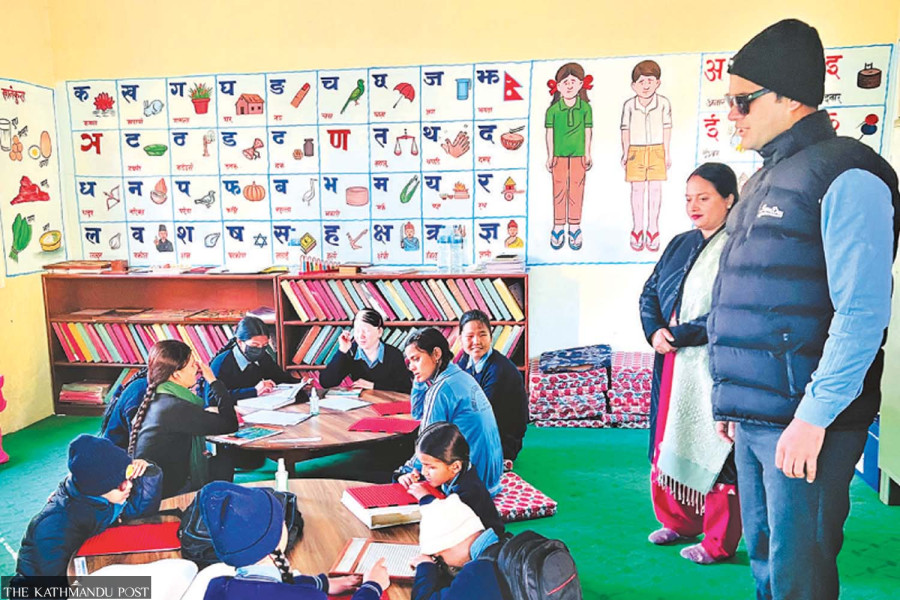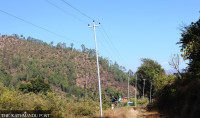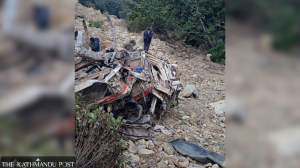Karnali Province
Karnali students affected by lack of disabled-friendly infrastructure
Girl students with disabilities miss five days of classes during menstruation for a lack of proper infrastructure in several of the region’s schools.
Jyotee Katuwal
Sita Sinjali Magar, a 15-year-old visually impaired sixth grader at Shree Krishna Sanskrit Secondary School in Birendranagar, skips classes for five days every month during her menstrual cycle because the school does not have accessible toilets.
“There is a girls’ toilet at the school, but I do not feel comfortable using that toilet during my menstrual cycle when I have to be extra attentive to my hygiene and cleanliness,” Magar said. “I would rather stay home for five days than face major inconveniences at school when I am menstruating.”
Mansubha BK, a 14-year-old visually impaired sixth grader at the same school, also faces the same problems as Magar. “I also skip school when I am menstruating because the condition of the toilet at school is so poor,” BK said. “The toilet is dirty all the time and using it to change my period pads sitting on that toilet is unimaginable.”
Shree Krishna Sanskrit School has 23 students with disabilities in the current academic session but the school does not have a single accessible toilet for them.
“Most of the students with disabilities are girls and we all suffer from the lack of accessible toilets,” BK said. “Fifteen of us are visually impaired, six have various physical disabilities and two are living with cognitive disabilities. All of us have been asking for accessible infrastructure but the school has not done anything about it.”
According to Kamala BK, a sixth grader at the Nepal Rastriya Secondary School in Dullu Municipality, Dailekh, there are 15 girl students with disabilities studying in the school. Wheelchair users do not have access to the toilets in the school and blind students do not feel safe using the toilet alone.
“Lack of proper toilets poses major difficulties, especially for girl students. Girls with disabilities skip classes for five days every month to avoid the hassle of using the school toilets,” said Kamala.
A majority of government schools in Karnali Province do not have infrastructures that are accessible for students with disabilities but the government has not maintained data on such schools. The lack of data impedes any envisioned progress to promote the inclusive infrastructures at public schools, said Suresh Kumar Khadka, a teacher at the Shree Krishna Sanskrit Secondary School.
“Absenteeism among girl students is higher especially if they are living with disabilities because of lack of accessible infrastructure,” Khadka said. “Education is a child’s birthright and the authorities must make provisions to accommodate every student and create a conducive environment for them to flourish academically.”




 13.12°C Kathmandu
13.12°C Kathmandu












